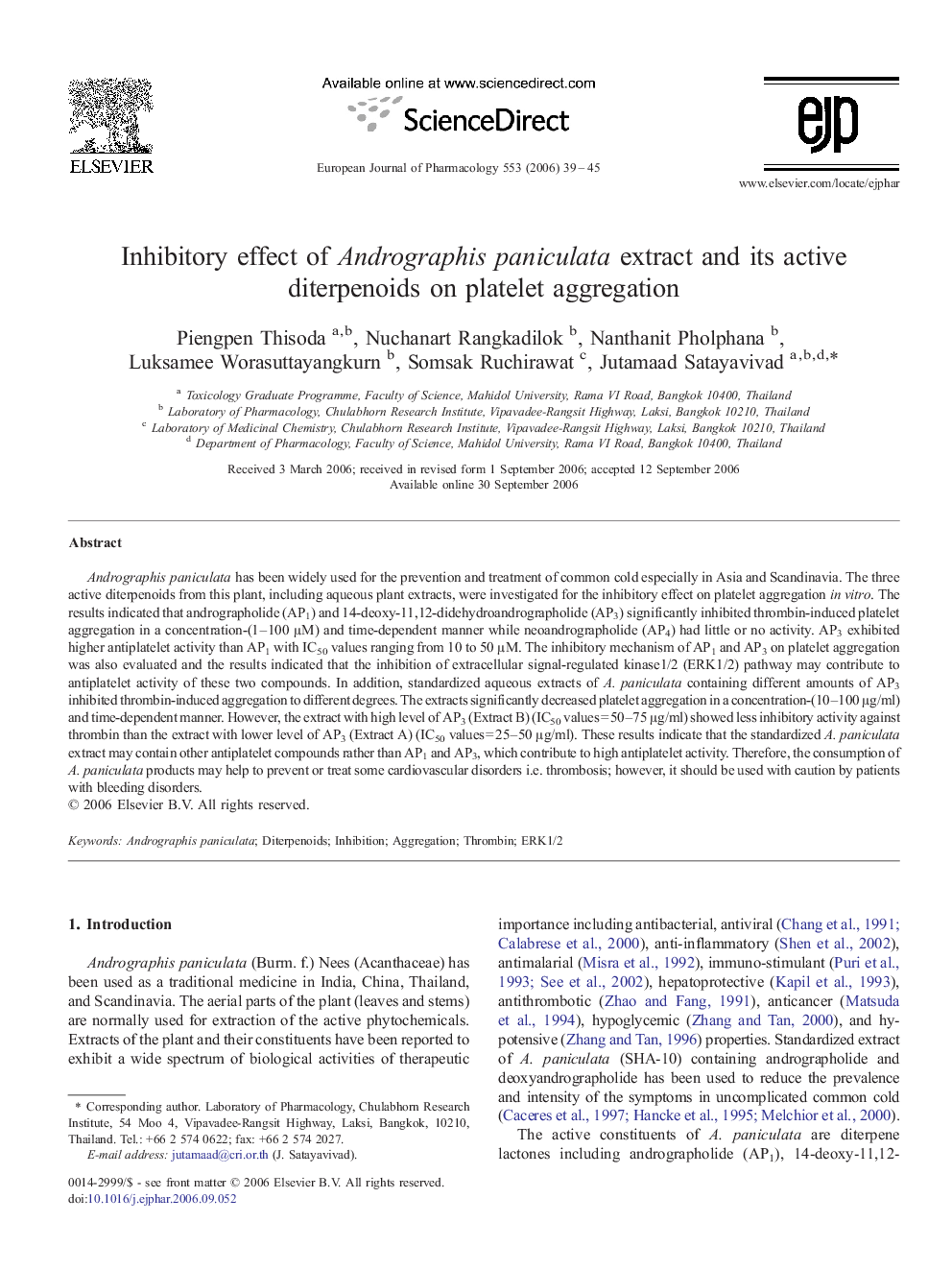| Article ID | Journal | Published Year | Pages | File Type |
|---|---|---|---|---|
| 2536547 | European Journal of Pharmacology | 2006 | 7 Pages |
Andrographis paniculata has been widely used for the prevention and treatment of common cold especially in Asia and Scandinavia. The three active diterpenoids from this plant, including aqueous plant extracts, were investigated for the inhibitory effect on platelet aggregation in vitro. The results indicated that andrographolide (AP1) and 14-deoxy-11,12-didehydroandrographolide (AP3) significantly inhibited thrombin-induced platelet aggregation in a concentration-(1–100 μM) and time-dependent manner while neoandrographolide (AP4) had little or no activity. AP3 exhibited higher antiplatelet activity than AP1 with IC50 values ranging from 10 to 50 μM. The inhibitory mechanism of AP1 and AP3 on platelet aggregation was also evaluated and the results indicated that the inhibition of extracellular signal-regulated kinase1/2 (ERK1/2) pathway may contribute to antiplatelet activity of these two compounds. In addition, standardized aqueous extracts of A. paniculata containing different amounts of AP3 inhibited thrombin-induced aggregation to different degrees. The extracts significantly decreased platelet aggregation in a concentration-(10–100 μg/ml) and time-dependent manner. However, the extract with high level of AP3 (Extract B) (IC50 values = 50–75 μg/ml) showed less inhibitory activity against thrombin than the extract with lower level of AP3 (Extract A) (IC50 values = 25–50 μg/ml). These results indicate that the standardized A. paniculata extract may contain other antiplatelet compounds rather than AP1 and AP3, which contribute to high antiplatelet activity. Therefore, the consumption of A. paniculata products may help to prevent or treat some cardiovascular disorders i.e. thrombosis; however, it should be used with caution by patients with bleeding disorders.
